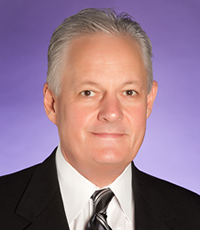Being born in a third world country opens your eyes in ways the first world doesn’t. I believe in the value food. A meal may seem like a common part of your day here in the states, but in the Dominican Republic, every piece of food is a reason to be thankful.
My mother worked as an adoption lawyer during my early childhood. She always took my sister and I along on trips to meet with parents looking to offer their kids a better life. I was about six years old when I met Patricia, a girl my age, who was getting ready to move across the ocean to meet her new mother. I walked up to her while she played in the dirt. Keeping herself entertained with sticks and rocks. She smiled at me and invited me to join her. Her clothes may have been ripped, and she may not have remembered when her last meal was, but still, she smiled.
After a few hours of conversation and review, my mom finalized the adoption and Patricia, with nothing but the clothes on her back, hopped in the car, waved goodbye to her father, and drove back to the capital with us. That afternoon she feasted, after filling her plate with my family’s home cooking, she cleared every bit of mofongo, rice, beans, chicken, carne de res, and yucca off of it. Patricia thanked my mother and grandparents, for allowing her the blessing of her first healthy meal and for welcoming her into their home, she also made sure to ask for seconds.
I never leave food on my plate. I rarely toss out portions of a meal, and I never take my health for granted. We didn’t always have a full fridge, and the food wasn’t always rich in flavor, but a meal was better than none, and my sister and parents and I, all learned that lesson at a very young age.
I cringe at the sight of food in the garbage.
I always try to encourage my friends to serve themselves a realistic portion and empty their plates. My leftovers will never reach someone impoverished across the ocean, but it might make the homeless man down the street smile. I understand the pain of hunger and I, more than anything, respect those who are not as fortunate as I. I strongly believe no one has the right to dispose of a meal. I’m not sure if I’ve grown stubborn because of my family’s constant reminders to always clear my plate, but I know that there is someone out there who would do anything to eat the food I carelessly tossed out.
…………………………………………………………..
 Karenne was born in Santa Domingo, Dominican Republic, and almost immediately migrated across the globe. In 2005, she and her family moved from their hometown i Nancy, France, to Miami, Florida. She is currently a double major at TCU studying mechanical engineering and writing.
Karenne was born in Santa Domingo, Dominican Republic, and almost immediately migrated across the globe. In 2005, she and her family moved from their hometown i Nancy, France, to Miami, Florida. She is currently a double major at TCU studying mechanical engineering and writing.

